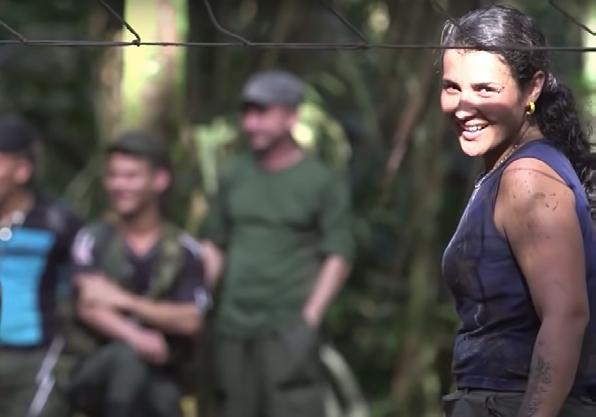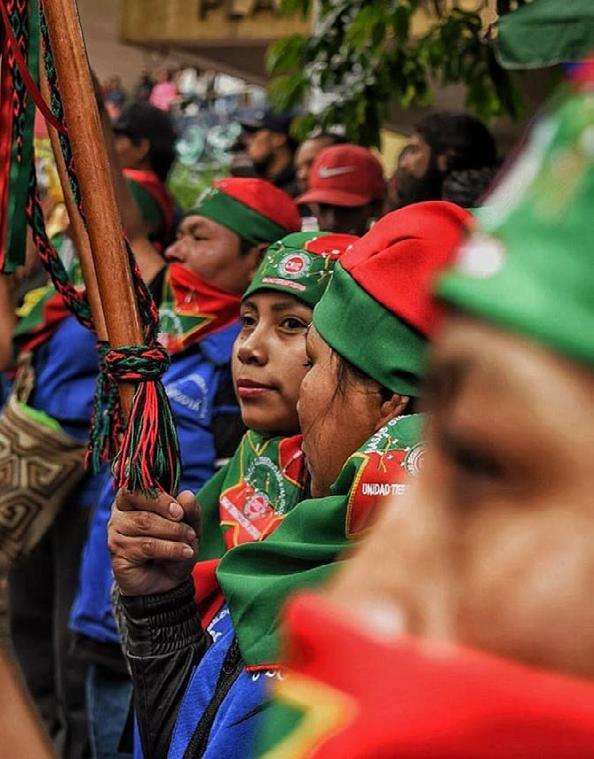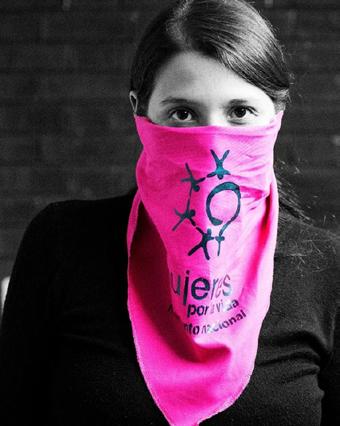
2 minute read
Peace in Movement: Colombia in Our Times
This photographic report gathers young women’s testimonies and experiences with peacebuilding and their daily activities in different scenarios for political advocacy.
BY: CARTOGRAFÍA SUR PHOTOGRAPHY: ANDREA PUENTES, Cartografía Sur Communications Staff. Proposal to use photo reporting as a tool for political advocacy, rooted in experience and visual representation @callejera_fotografia.
fter the 2016 signing of the Final Agreement to End the Conflict and Build a Stable and Lasting Peace in Havana, Cuba, Colombia was again confronted by a context where the population is still unable to access the fundamental right to life with social justice. Since the peace agreement, there have been ongoing and systematic assassinations of ex-combatants from the FARC— The Revolutionary Armed Forces of Colombia—who decided to abandon the armed conflict, in addition to social leaders throughout the Colombian territory. A
The response of society and social movements has been mass protests around the country to reject violence and demand guarantees for the agreement’s implementation, as well as a transformation of the living conditions of the nation, in addition to fundamental economic, social, and cultural rights. This photographic chronicle is a collection of testimonies and experiences on peacebuilding carried out by young women and their daily political advocacy efforts in different spaces. These diverse young women share their contributions, shouting their demands for a dignified life, peace with social justice, truth, reparation, an end to the war, and access to culture, art, and education. FM
Lucía Vargas Salinas during the filming of Revolución Interna: dentro y fuera de los oídos, a short documentary collectively created in Periscopio Invertido 2019 (Inverted Periscope 2019).
Woman from the Indigenous Guard of the Regional Indigenous Council of Cauca (CRICConsejo Regional Indígena del Cauca) in the Temporary Humanitarian Refuge, April 2019.
Lucía Vargas Salinas is a Colombian rapper who has been on the hip hop scene for about 19 years. She began in southern Bogotá and, as she puts it, “I am from the places my feet have walked.” For Lucía, being a woman on

To answer the question, “why did you decide to rejoin civilian life?” she responded, “because I had the opportunity to learn, to unearth memories at a time of reconciliation based on my condition as a woman, student, and ex-guerrilla from the FARC.” In relation to the memory processes for Colombia in Our Times, Alexandra considers that memory “is reconstructed by each individual and, therefore, in spaces like Periscopio Invertido where there is a wide diversity of ideas and emotions.”
the hip hop scene has meant solidarity, respect, and love. “I contribute to peace through art, music, and making my country's problems visible, such as the armed conflict, and I do all this from other spaces outside of Colombia, too.”

Alexandra Marín, photographs from her personal file and background material for Al Aire: RADIO UTOPÍA (On Air: RADIO UTOPIA) a short documentary, collectively created in Periscopio Invertido 2019.

Young activist in Gustavo Petro's 2018 presidential campaign.


